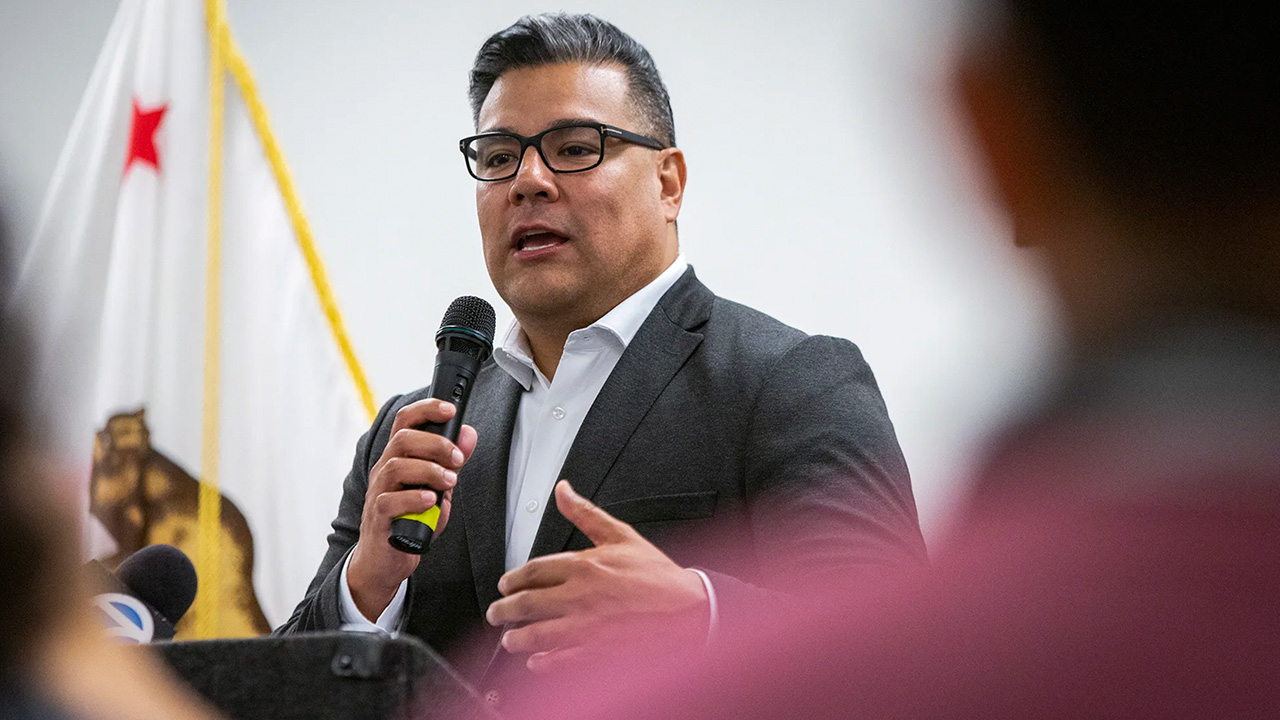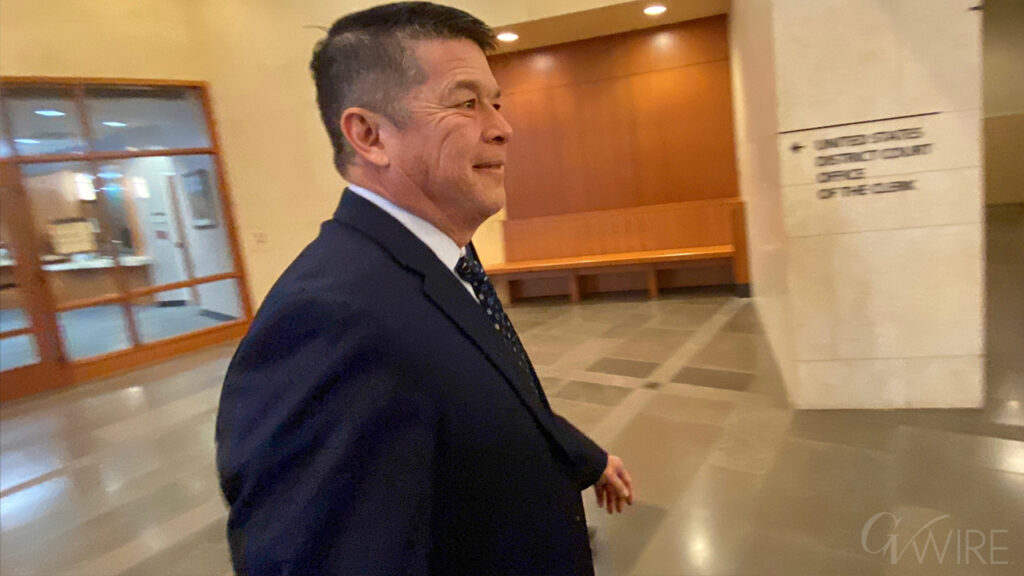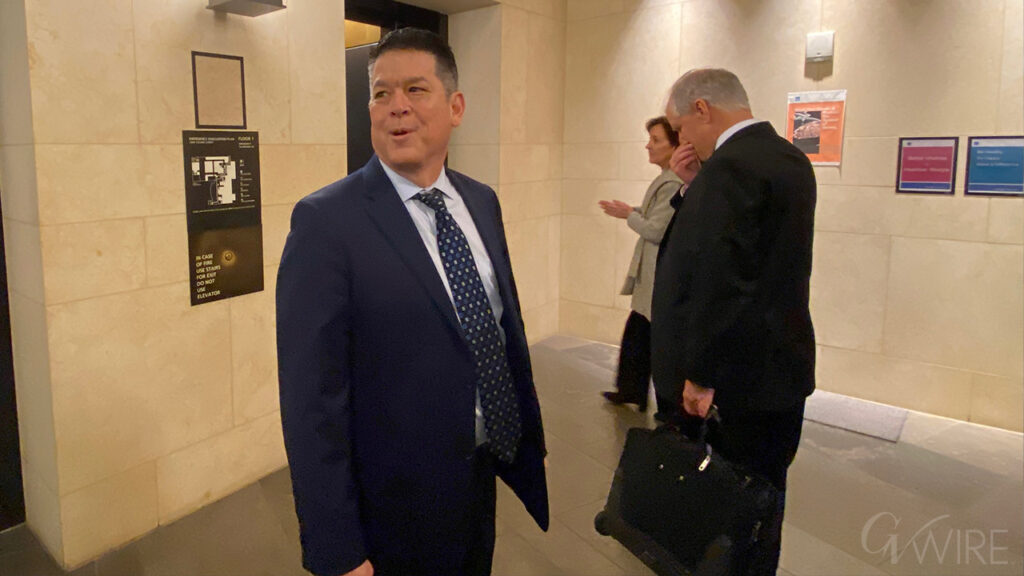
- The feud between state Insurance Commissioner Ricardo Lara and the nonprofit group Consumer Watchdog won't end until he exits office.
- Lara has proposed a major overhaul in how insurers calculate their potential losses.
- Another proposed change could negatively impact Consumer Watchdog's finances.
Share
|
Getting your Trinity Audio player ready...
|
This commentary was originally published by CalMatters. Sign up for their newsletters.
The horrific string of wildfires that has plagued California in recent years, taking dozens of lives and destroying many billions of dollars in property, also created a crisis in property insurance.
Some insurers have abandoned California altogether, some have refused to take more clients, many have sought premium increases and the state’s insurer-of-last-resort, the FAIR plan, has seen so much new business that its long-term solvency is in doubt. Meanwhile, fire victims often complain that insurers and their adjusters are low-balling settlement offers.
Obviously California’s property insurance market needs reform of some kind to improve its viability, but it’s an infinitely complex mélange of financial risks and rewards, truly understood by only a few experts.
Ricardo Lara, a former state legislator, happened to be California’s elected insurance commissioner when the crisis hit home, so by default he had to develop a response while simultaneously fielding complaints from victims and dealing with insurers’ demand for premium increases to cover mounting losses.
Lara has proposed a major overhaul in how insurers calculate their potential losses, seeking premium adjustments and a shift from using only past experience to project future losses, which is called “catastrophe modeling.” It is necessary, he said, to persuade insurers to keep writing policies in California and stave off a collapse of the market.
Lara’s Feud With Consumer Watchdog
The proposal has heightened Lara’s feud with Consumer Watchdog which began even before his 2018 election.
The organization had sponsored the 1988 ballot measure that converted the insurance commissioner’s position from an appointed job to an elected post and laid down a new set of rules for regulating premiums.
Thereafter, Consumer Watchdog enjoyed close relationships with elected commissioners and was awarded many millions of dollars in “intervenor fees” for participating in premium-setting cases in the Department of Insurance. The nonprofit organization contends that its participation has saved consumers many more dollars than it has collected in fees.
From the onset of Lara’s bid for the office, Consumer Watchdog was critical of him, alleging he was too friendly with insurers. When Lara unveiled his overhaul of the premium-setting process, adopting an approach insurers supported, the feud escalated.
Nevertheless, throughout Lara’s tenure, Consumer Watchdog has continued to receive large intervenor fees paid by insurers. However, that may not be true in the future.
Lara’s Overhaul Would Hurt Consumer Watchdog’s Finances
Last week Lara proposed another procedural overhaul, this time changing how intervenor fees are calculated and awarded, saying “these reforms will, for the first time, protect consumers from hidden fees, establish clear guidelines for intervenor participation and strengthen oversight of the administrative hearing system to prevent unnecessary delays.”
Lara’s proposal includes redefining the “substantial contribution” standard for awarding intervenor fees, requiring more public reportage of intervenor activities and compensation, requiring officials who preside over rate cases to file regular reports on pending cases, and requiring the Department of Insurance to post rate case documents online.
The proposal’s “substantial contribution” element is the one that could affect Consumer Watchdog’s finances. Lara left no doubt it is aimed at the organization.
Lara described the current process, created by the first elected commissioner, John Garamendi, in the early 1990s as lacking transparency and “dominated by a small number of recurring participants.”
To punctuate that characterization, Lara released a list of 28 rate cases this year, 26 of which resulted in nearly $1.4 million in intervenor fees for Consumer Watchdog.
Consumer Watchdog, not surprisingly, opposes Lara’s new rules.
“If the goal of Insurance Commissioner Ricardo Lara’s new intervenor compensation regulations is to bring in new intervenors into the process, his regulations will do the opposite,” Jamie Court, president of Consumer Watchdog, said in a statement. “By making it harder for intervenors to be paid, he will discourage intervenors from participating.”
Thus the feud, already 6 years old, will continue, at least until term limits end Lara’s tenure and another commissioner is elected next year.
This article was originally published on CalMatters and was republished under the Creative Commons Attribution-NonCommercial-NoDerivatives license.
RELATED TOPICS:
Categories

US, Iran Spar Over Nuclear Talks at UN


















